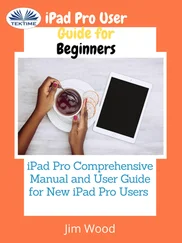All of this is not to say that numbers in economics are all useless or even necessarily misleading. We need numbers to be able to get the sense of magnitude of our economic world and monitor how it changes; we just shouldn’t accept them unthinkingly.
The economy is much bigger than the market: the need to think about production and work
Much of economics these days is about the market. Most economists today subscribe to the Neoclassical school, which conceptualizes the economy as a web of exchange relationships – individuals buy various things from many companies and sell their labour services to one of them, while companies buy and sell from many individuals and other companies. But the economy should not be equated with the market. The market is only one of many different ways of organizing the economy – indeed, it accounts for only a small part of the modern economy. Many economic activities are organized through internal directives within firms, while the government has influence over – and even commands – large sections of the economy. Governments – and increasingly international economic organizations like the WTO – also draw the boundaries of markets while setting rules of conduct in them. Herbert Simon, the founder of the Behaviouralist school, once estimated that only about 20 per cent of economic activities in the US are organized through the market.
The focus on the market has made most economists neglect vast areas of our economic life, with significant negative consequences for our wellbeing. The neglect of production at the expense of exchange has made policy-makers in some countries overly complacent about the decline of their manufacturing industries. The view of individuals as consumers, rather than producers, has led to the neglect of issues such as the quality of work (e.g., how interesting it is, how safe it is, how stressful it is and even how oppressive it is) and work–life balance. The disregard of these aspects of economic life partly explains why most people in the rich countries don’t feel more fulfilled despite consuming the greatest ever quantities of material goods and services.
The economy is much bigger than the market. We will not be able to build a good economy – or a good society – unless we look at the vast expanse beyond the market.
So What?: The Economy Is Too Important to be Left to Professional Economists
All of this sounds fine, you may say, but so what? It would be entirely reasonable for you to say: I am only a consumer of information produced by professional economists, so what am I supposed to do with this new knowledge?
There is actually a great deal you can – and should – do with it. I will mention only the three most important things.
‘An expert is someone who doesn’t want to learn anything new’: how not to be ‘used’ by economists
Harry S. Truman, in his typical no-nonsense style, once said that ‘An expert is someone who doesn’t want to learn anything new, because then he would not be an expert.’
Expert knowledge is absolutely necessary, but an expert by definition knows well only a narrow field and we cannot expect him or her to make a sound judgement on issues that involve more than one area of life (that is, most issues), balancing off different human needs, material constraints and ethical values. The possession of expert knowledge can sometimes give you a blinkered view. This dose of scepticism about expert knowledge should be applied to all areas of life, not just economics. But it is especially important in economics – a political argument often presented as a science.
You should be willing to challenge professional economists (and, yes, that includes me). They do not have a monopoly on the truth, even when it comes to economic matters (not to speak of ‘everything’). To begin with, most of the time they cannot agree among themselves. Very often, their views can be narrow and distorted in particular ways – like all other professions, the economics profession is subject to what the French call déformation professionelle . It is entirely possible for people who are not professional economists to have sound judgements on economic issues, based on some knowledge of key economic theories and appreciation of underlying political and ethical, as well as economic, assumptions. Sometimes, their judgements may even be better than those of professional economists, since they may be more rooted in reality and less narrowly focused. The economy is too important to be left to the professional economists alone.
I would go one step further and say that the willingness to challenge professional economists – and other experts – should be a foundation of democracy. When you think about it, if all we have to do is to listen to the experts, what is the point of having a democracy at all? Unless we want our societies to be run by a body of self-elected experts, we all have to learn economics and challenge professional economists.
‘Audite et alteram partem’ (listen even to the other side): the need for humility and an open mind
On the walls of the city hall of Gouda in the Netherlands is written the Latin motto: ‘Audite et alteram partem’ (Listen even to the other side). [280] I thank Deirdre McCloskey for pointing me to this quote.
This is the attitude you should have in debating economic issues. Given the complexity of the world and given the necessarily partial nature of all economic theories, you should be humble about the validity of your favourite theory and should keep an open mind about it. This is not to say that you should have no opinion – you need to have your own – hopefully strong – view, but that is not the same as believing that it is right in some absolute sense.
I have argued that there is something to learn from all those different schools of economics – from the Marxist school on the left to the Austrian school on the right. Indeed, throughout history, too many lives have been ruined by people with excessive conviction in their own views – from the Khmer Rouge on the left to the neo-liberal market fundamentalist on the right.
‘Pessimism of the intellect, optimism of the will’: changes are difficult to make, but even big ones are possible, if you try hard enough and long enough
Throughout the book, we have seen how difficult it is to change economic reality – whether it is low wages in poor countries, tax havens that serve the super-rich, excessive corporate power or an overly complex financial system. Indeed, the difficulty of changing the status quo, even when most people agree that it is only serving a tiny minority, is manifested nowhere as clearly as in the limited reform that has been made to our current neo-liberal economic policies (and the economic theories that are behind them) even after the 2008 financial crisis has clearly shown their limitations.
Sometimes the difficulty is due to the active attempts by those who benefit from the current arrangements to defend their positions through lobbying, media propaganda, bribing or even violence. However, the status quo often gets defended even without some people actively ‘being evil’. The ‘one-dollar-one-vote’ rule of the market drastically constrains the ability of those with less money to refuse undesirable options given to them by the underlying distribution of income and wealth (recall my criticism of Paul Krugman on low wages in Chapter 4). Moreover, we can be susceptible to beliefs that go against our own interests (‘false consciousness’ from Chapter 5). This tendency makes many losers from the current system defend it: some of you may have seen American pensioners protesting against ‘Obamacare’ with placards saying ‘Government hands off my Medicare’ when Medicare is – well, let me put it delicately – a government-funded and -run programme.
Читать дальше












